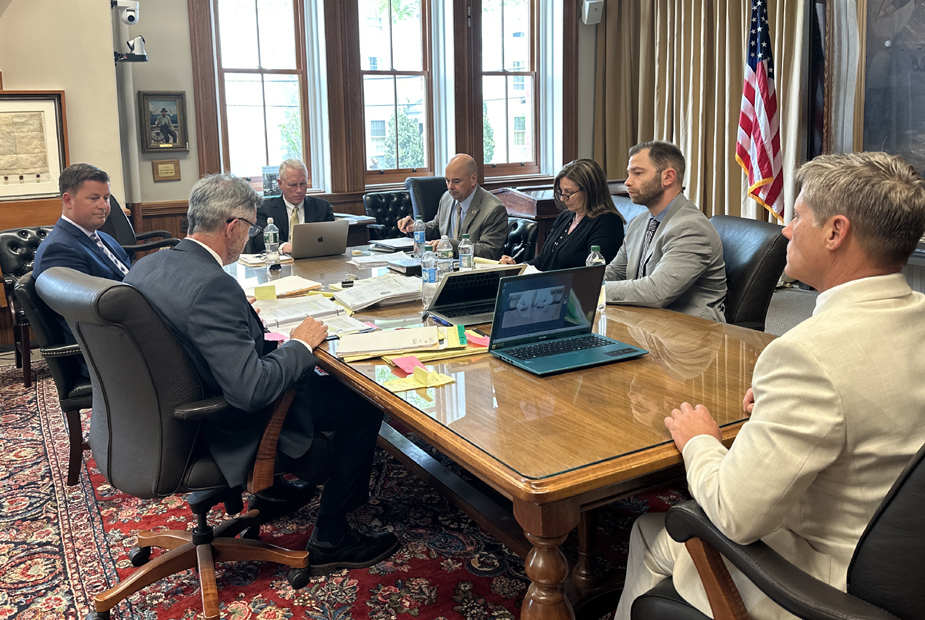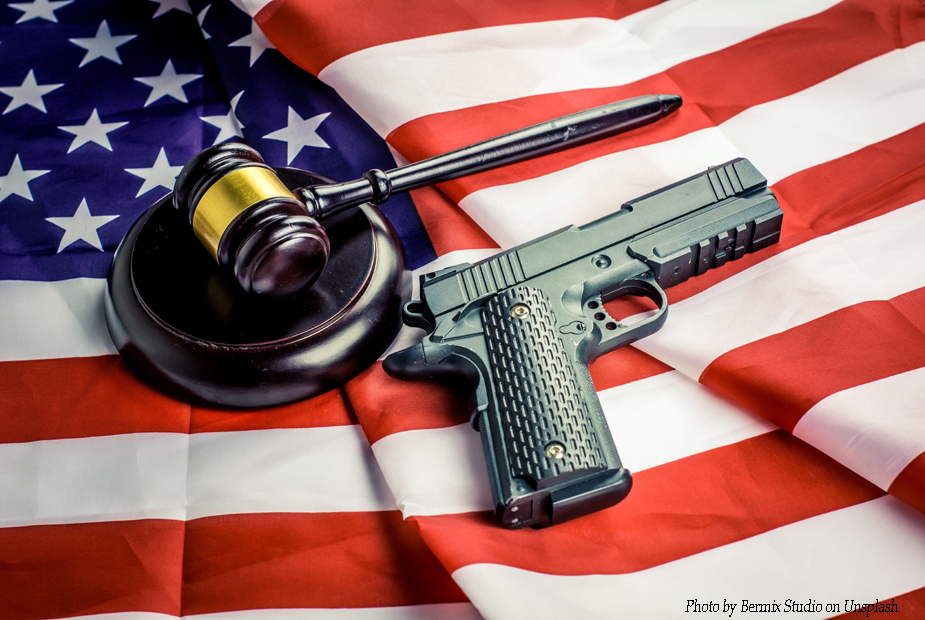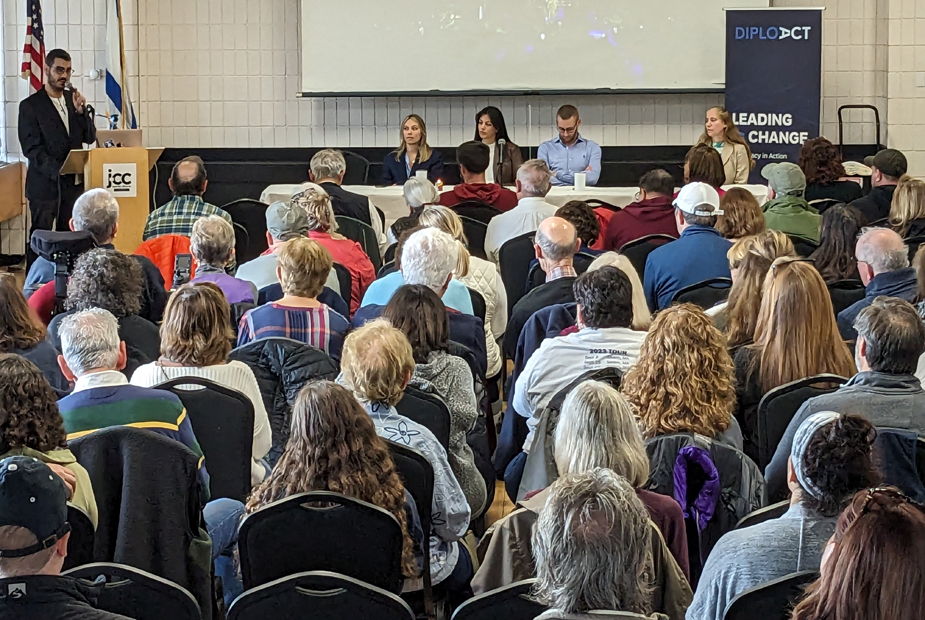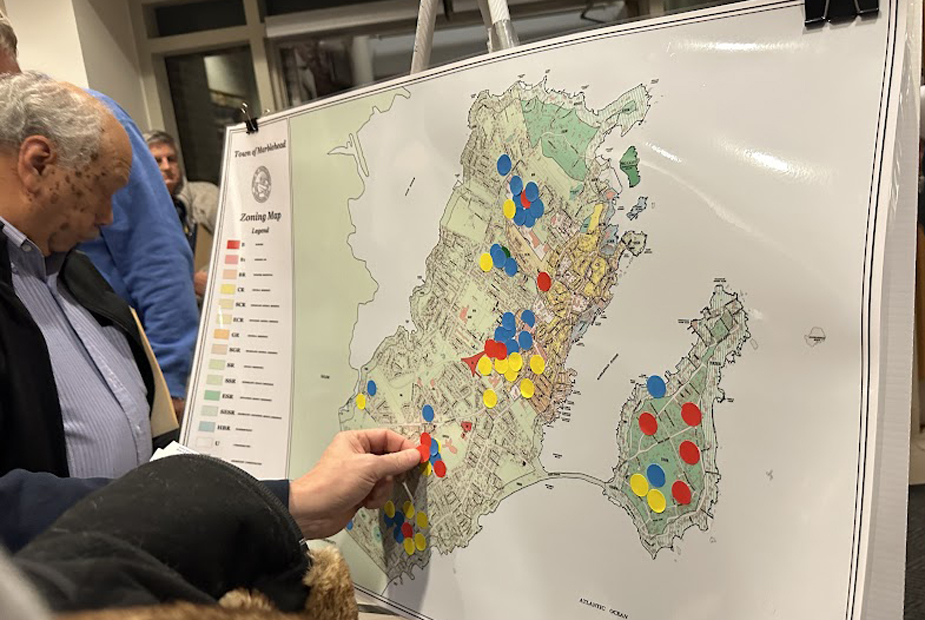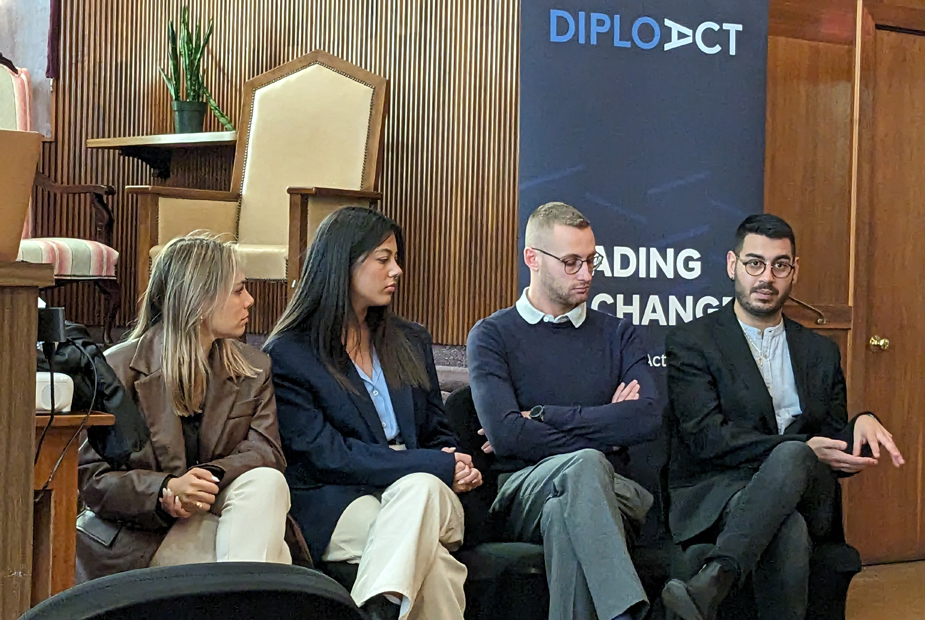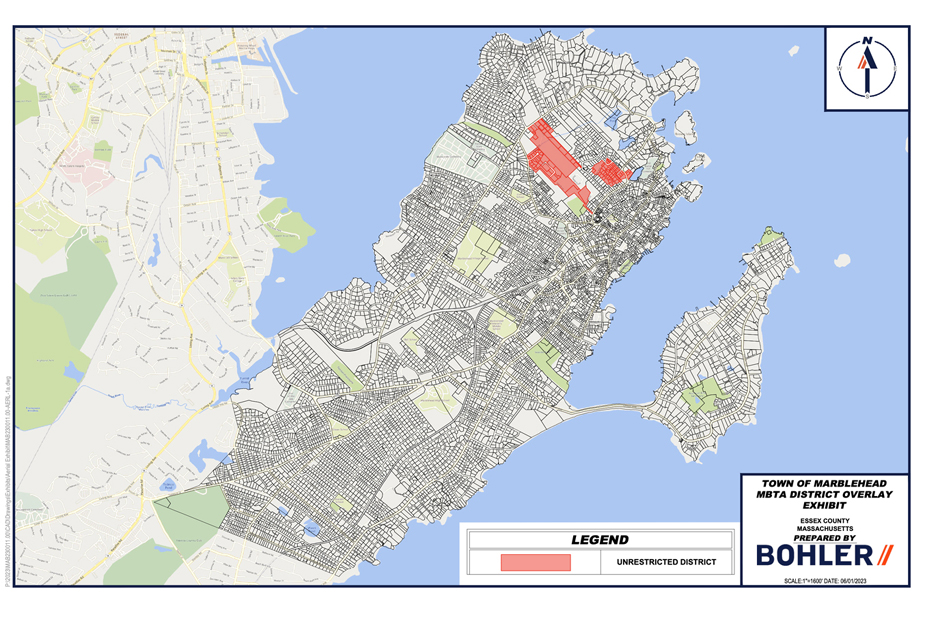Almost Two Years In, Town Holds Hearing for Police Officer on Paid Suspension
For Marblehead Police Department (MPD) Patrolman Christopher Gallo, what began as two five-day suspensions in 2021 now clocks in at nearly two years on mandatory leave. Various parties in town, including the Select Board, have been “kicking the can down the road,” contends Gallo’s attorney, Gary Nolan. It took until March 2023 for the Town of Marblehead to move forward with a hearing, with the first day in late March and the second this past Tuesday, May 16. Officer Gallo has collected his full base pay during the entire time his suspensions have been in effect.
Town Administrator Thatcher Kezer presided over both days of the hearing, which was intended to determine whether the two suspensions were valid and whether or not Gallo would be allowed to return to the police force. In either case, the Select Board’s stamp of approval is required. The hearing was made public at the request of Gallo, who indicated that he was eager to return to work after many delays in having his case heard. The town was represented by Attorney Jane Friedman.
Attorney Nolan, representing Gallo, described the forum as “the wild west” due to what he described as unauthenticated documents, photographs, and “unfair” information being allowed into evidence because Kezer is “an agent of the town” and therefore cannot possibly be impartial when one of the two sides is the town itself.
At issue are two incidents that resulted in two paid, administrative suspensions of Gallo, who testified that he is MPD’s most senior patrolman. Gallo has had multiple suspensions or reprimands in his two-plus decades on MPD’s force, but two issues from 2021 events are the subject of the current hearing.
Unlawful Retaliation for Whistleblowing, Says Gallo
Both of these incidents occurred within two months of each other and followed soon after Gallo reported that a fellow police officer – Timothy Tufts – had carved a swastika on another officer’s personal car. The timing of the two suspensions, according to Nolan, points to “unlawful retaliation” against Gallo by former Marblehead Chief of Police Robert Piccariello and the current Chief, Dennis King, each of whom suspended Gallo for one of the incidents.
After Gallo reported on Tufts, an independent investigator was hired, and the resulting findings led to “bad publicity” for the department, according to Nolan, who asserted that his client was blamed, and the suspensions soon followed as retaliation.
Chief King and Town Attorney Friedman both refuted this contention, pointing to underlying facts they claim support each suspension.
First Suspension: Was Gallo’s Police Cruiser Parked at Home During Overnight Shifts?
The first suspension in question took place in June 2021 and stemmed from an anonymous assertion to the Office of the Inspector General (OIG) that on 19 different days the prior winter, Gallo had been at home during his overnight shifts – with his official police cruiser parked in his driveway rather than patrolling the streets of Marblehead.
The OIG ultimately referred the matter to MPD for further investigation, resulting in Piccariello suspending Gallo.
Testimony by Sergeant Sean Brady – who conducted MPD’s Internal Affairs (IA) investigation into the parked cruiser allegations – referenced the fact that it was an open secret at MPD that the complaint and photos had come from former MPD officer Tufts, who allegedly was disgruntled after having had to resign from MPD following Gallo blowing the whistle on him for the swastika episode.
Brady also testified that it was his understanding that he was not permitted to reach out to Tufts to corroborate the authenticity of the photos or anything else regarding the case. During the hearing, MPD did not address the possibility that the photos had been altered or merely reflected small snapshots in time. Marblehead Beacon reached out to a relative of Tufts for comment but as of publication time had not heard back.
Brady did testify that he had cross-referenced the dates and times associated with the photos and found that all of them corresponded with times Gallo was on duty and not out responding to a call.
Prior Bad Blood Between Tufts and Gallo
Animus between Gallo and Tufts dates back to at least May 2020, with an incident at Village Plaza involving both officers, an intoxicated woman, and a lost dog. Though he was admonished for arriving late to the scene and filing an insufficiently detailed report, Gallo ultimately was exonerated of any misconduct.
When Gallo blew the whistle on Tufts in 2021 for the swastika episode, an investigation was conducted by an independent investigator – the Town of Winthrop’s police chief – but his findings were not made public or submitted to Marblehead’s Select Board until after then-Chief Picariello’s retirement from MPD – approximately 19 months following the actual 2019 swastika incident. (Gallo himself claimed to have only learned about the incident many months after it transpired.)
Nolan contended that the suspensions of Gallo constituted “unlawful retaliation” because multiple officers had known for more than a year about the swastika episode but had failed to report it, and this fact cast Picariello and MPD in a “negative light.” The unearthing of this mess, according to Nolan, was blamed on Gallo.
Before he received a notice of suspension from MPD related to possible “time fraud,” Gallo and other officers had witnessed Tufts hiding behind bushes and cars at random hours in the middle of the night, according to testimony by Gallo. “He was stalking my house,” he said, adding that the photos in no way proved or reflected his being home for hours at a time during his shifts.
According to Nolan, another relevant component in the case was that during the period in question, significant Covid protocols were at play. Some of MPD’s Covid restrictions included all police roll calls being conducted in MPD’s parking lot, taking police reports over the phone rather than at the station, not congregating in the station, no officers allowed in the dispatch area, and minimizing all in-person contact to the degree possible. No policy expressly prohibited officers from going home for meals or other short stop-ins.
In spite of these Covid protocols, testified Gallo, “I’m one of the busiest officers on the force.” He pointed out that his response times to calls during all his overnight shifts were recorded, and were always rapid. Furthermore, he stated, bathroom breaks, food, gear, and online training were the only things for which he stopped by his home, all of which were a common practice. “I don’t buy fast food like most cops,” he testified. “I go home.” During Friedman’s cross examination Gallo testified that with the exception of an online training, “I wasn’t ever at home for any duration” while on shift. Friedman cross-examined him regarding the training, with a line of questioning suggesting that he had been home much longer than the training required.
Second Suspension: Gallo’s Enabling of an Alcoholic “Unbecoming,” Says Chief
Gallo’s second suspension arose from a “domestic” call from Gallo’s longtime live-in girlfriend to MPD in August 2021. It was determined fairly quickly by the four officers on the scene who interviewed all parties present that there had been no violence by the off-duty Gallo, and that the call had been prompted by Gallo asking his heavily intoxicated girlfriend to vacate the premises. She, too, ultimately admitted that he had not done anything to her. Mandatory reporting requirements, though, resulted in the Department of Children and Families (DCF) being notified, as Gallo’s two teenage daughters had been present during the episode. After reviewing relevant information, DCF declined to open a case.
Attorney Nolan argued that the suspension stemming from the domestic call was baseless, arguing that King only came up with much of his rationale about eight months later when he determined that Gallo had violated various sections of MPD’s policies, including provisions related to permitting his girlfriend – who suffers from substance use disorder – to become intoxicated while they were out boating with the kids.
Gallo testified that grown adults cannot control other adults, pointing to his failed efforts to have his girlfriend take Antabuse (a prescription designed to disincentivize the consumption of alcohol because it causes one to feel very sick upon drinking). She had initially taken the medication, and he’d remained with her for 20 minutes after ingestion. He could not, however, keep her from later deciding to vomit it up as she did, or from consuming alcohol as the day wore on, he testified. “She’s not a cat. I can’t just put it in a piece of cheese and trick her into taking it.”
At times during the hearing Gallo appeared to be choked up, testifying that just days prior to the incident, his girlfriend had completed nine months of sobriety, but “fell off the wagon.” He added that substance use disorder is a recognized disease, that he had sent her to multiple in-patient and out-patient rehabilitation facilities, that he was not “an enabler,” and that she should not be a scapegoat in the hearing.
During one point in his testimony Gallo looked across the table directly at King and testified that clearly “the Chief has been graced with not having a loved one with this affliction,” or he would understand that one cannot control another person, much less keep her from drinking, and that the day she got intoxicated and called 911 should not be a reflection on him as a police officer.
Gallo further testified that he himself had one beer the entire day while on a boat with another friend and fellow police officer, but at no point did he have any other alcohol. No evidence was offered suggesting that Gallo himself was intoxicated, but one of the MPD violations he is accused of is off-duty alcohol use, which he testified had never been raised in the recorded questioning he’d undergone during MPD’s investigation surrounding the events.
What’s Next?
Rather than hear closing arguments, Kezer asked the two attorneys to write briefs by the end of June, after which he will render findings and make a recommendation to the Select Board. He expects that the Select Board will hold a special hearing sometime in September to issue its decision. Depending on the outcome, Gallo will have the opportunity to appeal the decision to an arbitrator.

